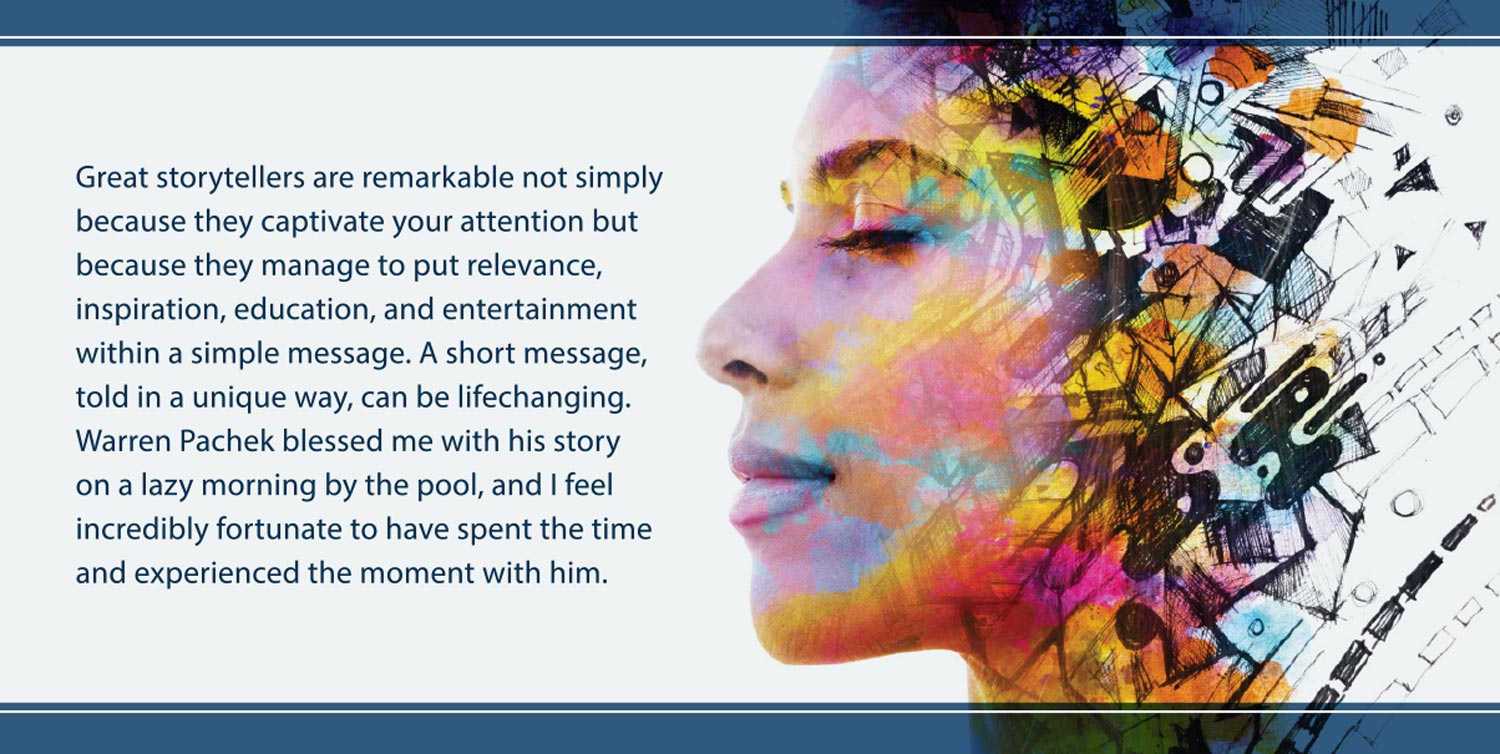“I can’t take it with me.”
his statement was offered to me by an older gentleman as we lounged by the pool in Lahaina, Hawaii. He was not talking about money or material possessions. Rather, he was speaking of time—time with his staff and colleagues, fun time with his friends and neighbors, and meaningful time with his grandchildren, his kids, and his lovely wife.
Indeed, we cannot take with us what we let pass or let go of in the first place.
As this man and I exchanged pleasantries about our lives, families, and careers, he shared how his personal choices often negatively affected time with others. His insights reminded me of two Greek terms I learned years ago: Chronos and Kairos.
- Chronos Time is the measure of quantitative time or an exact time such as years, hours, minutes, or seconds. Chronos is constant, counted, and extrinsic, meaning it is occurring outside of and/or beyond our control.
- Kairos Time measures the fullness of time; it marks the moments, feelings, and other qualitative periods in which we live. Kairos is an experienced sense of time and hence is quite intrinsic and unique to each of us.
We all get the same amount of Chronos, and what we choose to do with that time either creates, lures or distracts us from meaningful Kairos.
With the industrial revolution came a shift in the pendulum. The advance of technology meant folks were no longer dependent on just the earthly provisions which provided a natural ebb and flow to their lives. Instead, people could optimize time, capitalize on time, and chase time. However, they quickly found themselves rushed, hurried, and worried. Soon, we all felt it—we were running out of time, losing time, and being slaves to time. Shall I stop and smell the roses? I don’t think so—I’ve got things to do! Indeed, in the modern world, our tense association with Chronos minimized the chances of experiencing healthy and positive Kairos.
I believe the COVID-19 pandemic has helped shift the pendulum a bit. Certainly, COVID-19 caused a world-wide reflection about our own mortality, which has demanded we look differently at time. However, for me, it was this simple conversation at the pool that validated and confirmed the need for me to do so.

“I can’t take it with me.”
his statement was offered to me by an older gentleman as we lounged by the pool in Lahaina, Hawaii. He was not talking about money or material possessions. Rather, he was speaking of time—time with his staff and colleagues, fun time with his friends and neighbors, and meaningful time with his grandchildren, his kids, and his lovely wife.
Indeed, we cannot take with us what we let pass or let go of in the first place.
As this man and I exchanged pleasantries about our lives, families, and careers, he shared how his personal choices often negatively affected time with others. His insights reminded me of two Greek terms I learned years ago: Chronos and Kairos.
- Chronos Time is the measure of quantitative time or an exact time such as years, hours, minutes, or seconds. Chronos is constant, counted, and extrinsic, meaning it is occurring outside of and/or beyond our control.
- Kairos Time measures the fullness of time; it marks the moments, feelings, and other qualitative periods in which we live. Kairos is an experienced sense of time and hence is quite intrinsic and unique to each of us.
We all get the same amount of Chronos, and what we choose to do with that time either creates, lures or distracts us from meaningful Kairos.
With the industrial revolution came a shift in the pendulum. The advance of technology meant folks were no longer dependent on just the earthly provisions which provided a natural ebb and flow to their lives. Instead, people could optimize time, capitalize on time, and chase time. However, they quickly found themselves rushed, hurried, and worried. Soon, we all felt it—we were running out of time, losing time, and being slaves to time. Shall I stop and smell the roses? I don’t think so—I’ve got things to do! Indeed, in the modern world, our tense association with Chronos minimized the chances of experiencing healthy and positive Kairos.
I believe the COVID-19 pandemic has helped shift the pendulum a bit. Certainly, COVID-19 caused a world-wide reflection about our own mortality, which has demanded we look differently at time. However, for me, it was this simple conversation at the pool that validated and confirmed the need for me to do so.
For years, I had been led to believe various things about success in business.
- Successful business owners work long hours and sacrifice much of their personal time for their business endeavors.
- Successful executives drive themselves and their teams for long, extended hours with hopes of achieving extraordinary results.
- Successful innovators sacrifice so much of their time in a never-ending quest to discover or improve their products and services.
In other words, business success appears to be enabled by optimizing our Chronos.
But can we have both? Can we reveal or experience meaningful Kairos while being successful in our careers? Can a group of us enjoy moments and revelations and still ensure our organizations succeed? I think we can, but my poolside discussion served as a stark reminder that purposeful change and improvement is necessary.
Before we can think about how we spend our time, especially our time at work, many of us may need to change our spending habits. We have grown accustomed to the income that results from long hours, side hustles, etc. and we cannot imagine how we could manage without it. Therefore, to release ourselves from all of that work, we will need to relieve ourselves of our reliance upon money. There is no better way to start than improving the way we spend money.
Decades ago, my mom taught my siblings and me to be quite frugal and to analyze what we want to buy. Her analysis went like this:
- Do I need it?
- Why can’t I or shouldn’t I go without it?
- Can it be borrowed, rented or leased? Is it more cost-effective to do so?
- Can a used one be purchased? Why not?
- Can it be discounted in some way? If so, am I prepared to ask for it?
My mom called this “intentional purchasing,” and because we were quite poor during my childhood, this was a required mindset.
Today, I realize that the “intentional purchasing” analysis effectively opens the possibility for Kairos. This is because it relieves the pressure on our finances, which enables us to quit or decrease the side hustles, pass up the opportunities for overtime, etc. For me, diligently executing this process allows me to maintain a savings account for travel and fun, which, in turn, enables more “yes” answers when I’m asked to do things with my friends and family.
As I sat by the pool and listened to this wise man talk about his life and his choices regarding relationships, I felt validated. His stories revealed that people who rob us of our joy or who seek to strip us of our confidences are, in essence, robbing us of both Chronos and positive Kairos. Moreover, these thieves are indirectly robbing others because the damage they do to us ultimately begins to taint or spoil time and moments with others.
Therefore, I try to create boundaries and seek a balance of give and take in relationships. I eliminate or decrease my interactions with individuals who are more harmful than helpful. I know I will never be able to eliminate negative relationships fully, but I can and should mitigate the debits or harm they do to my time. This allows me to increase my focus, attention, and interactions with those who appreciate the time and/or aid in the creation of joyful, learning, or meaningful moments.
Great storytellers are remarkable not simply because they captivate your attention but because they manage to put relevance, inspiration, education, and entertainment within a simple message. A short message, told in a unique way, can be lifechanging. Warren Pachek blessed me with his story on a lazy morning by the pool, and I feel incredibly fortunate to have spent the time and experienced the moment with him.

As I reflect on the conversation from the pool, I realize that Chronos and Kairos need to be managed as a pair—conjoined twins of time, so to speak. Neither is more important or better than the other. Balancing the pair will require purposeful and mindful decisions about how we spend and acknowledge our time.
The better we manage Chronos, the more prepared we are to experience and take advantage of Kairos. Luckily, a million-dollar industry exists to help us manage Chronos. Whether it’s alarms, to-do lists, prioritization charts, or a plethora of other time management tools and tricks, we have the resources available to be well-versed in optimizing the twenty-four hours we are given each day. I keep things simple and strive to:
- Organize my activities, regardless of how small, within my calendar, and then respect my calendar. This gives me a sense of control over the time allotted. Because I am then able to get things accomplished, it gives me a sense of relief that I successfully managed time. These two things, control and accomplishment, enable positive experiences to seep into the day.
- Intentionally step away if and when I’m fighting with time. Whether it be physically or mentally, stepping away reduces the anxiety I feel about time. Disengaging, if only for a moment, allows me see things more clearly, adapt my priorities, pivot to a solution, etc. In essence, allowing Chronos to flip reveals its pair, Kairos, which often brings a renewed perspective to the situation.
Likewise, if we allow for more meaningful and enjoyable moments, we are more likely to hunker down, optimize, and prioritize our quantitative time. Kairos occurs when we stop forcing and controlling events and activities and allow things to happen naturally. “What will be will be” is the mindset, and thus I strive to:
- Make a path or opportunity for spontaneity. I know it seems counterintuitive to force or create spontaneity, but I learned something years ago from Gretchen Rubin when I read her book, The Happiness Project. Ms. Rubin suggests that we can mindfully create paths that lure spontaneity into our lives. I practice her advice by intentionally doing things I wouldn’t normally do. I intentionally visit randomly selected stores simply to open my mind to different hobbies, interests, and ideas. Every so often, I flippantly choose a movie or TV show regardless of if it’s well rated, “suggested for me,” or aligned with “my type” of entertainment. I often tell a server or retail representative to pick out something for me, no questions asked. Sometimes, these things lead to wonderful, serendipitous moments and sometimes they don’t, but I have yet to regret this approach.
- Allow for Kairos to appear. This state of “readiness” requires vigilance and effort and is quite difficult to do if we are always focused on Chronos and slaves to our schedule. To better enable this, we may need to put some wiggle room into our schedule, so to speak, to allow for a deviation, a trip down the rabbit hole, a deeper dive, etc. I started doing this to my schedule a while ago—I call it my thinking time. This extra time during my workday often allows for Kairos to sneak in, which makes work more meaningful and allows me to hunker back down when I need to bang things out.
In addition, I make sure that at least once per day, I actively seek meaningful moments such as:
- Playing with my dog
- Visiting with a friend
- Flipping through a book
- Going for a walk
- Writing a letter
- Looking through old photos
- Trying a new recipe
All of these activities will allow for Kairos to appear and, again, I have yet to regret the time spent doing so.
Years ago, I thought it best to treat my own life similarly and align my personal and professional decisions with that of my purpose. I have found this practice significantly helps me manage my time and ensures there is a good ratio of required to desired activities in my life. Identifying my purpose has had a profound effect on how I spend my quantitative time and, subsequently, how my time is experienced on a qualitative basis.
“Time waits for no one.”
“Lost time is never found again.”
“Time flies.”
I have used these statements a million times but that morning, by the pool, they assumed more weight. My new friend took the time-sharing stories of his life with me, and time stood still when I learned he was running out of it. As I nodded my head to demonstrate my understanding of his fate, I couldn’t help but feel honored. This kind man gave me the gift of time when he had so little for himself.
The world needs more of this.
The time is now.
